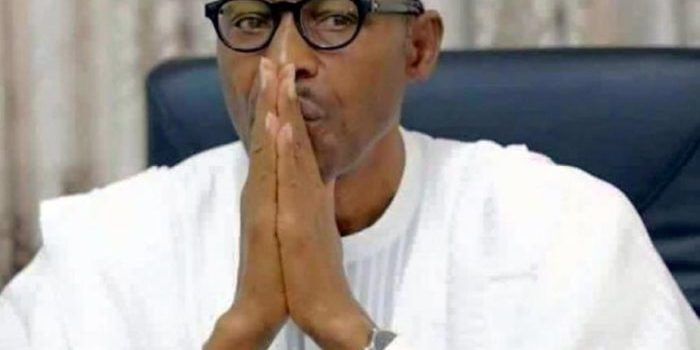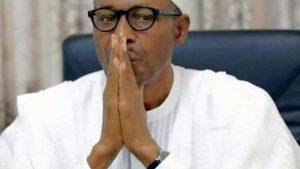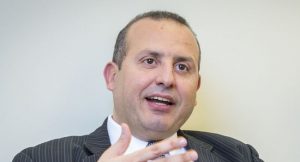

Despite IMF Warnings, Buhari Seeks Approval Of External Borrowing Plan
FeaturedSpecial Reports November 28, 2019 admin

Even as the International Monetary Fund (IMF) on Wednesday for the third time this year, expressed concerns over the rising debt profile of Nigeria, President Muhammadu Buhari on Thursday sought the re- consideration and approval of the National Assembly on the 2016-2018 External Borrowing Plan of the Federal Government.
Buhari’s request is contained in a letter address to President of Senate Ahmad Lawan and read at the plenary on Thursday.
“Request for the National Assembly to re-consider and approve the Federal Government’s 2016 and 2018 External Borrowing Plan.
“Pursuant to section 21 and Section 27 of the Debt Management Office Establishment Act.
“I hereby request for resolution of the Senate to approve the Federal Government’s 2016 and 2018 external borrowing plan as well as relevant projects under this plan.
“Specifically the senate is invited to note that while, I had transmitted the 2016-2018 external borrowing plan to the 8th National Assembly in September 2016, this plan was not approved in its entirety by the legislature.
“Only the Federal Government’s emergency projects, for the North-East’s four states projects and one China Exim Bank assisted railway modernisation project for Lagos-Ibadan segment were approved out of a total of 39 projects.
“The outstanding projects in the plan that were not approved by the legislature are nevertheless critical to the delivery of government policies and programmes relating to power, mining, roads agriculture, health, water and educational sectors.
“These outstanding projects are well advanced in terms of their preparation consistent to the 2016 debt analysis undertaken by DMO and were approved by the Federal Executive Council (FEC) in August 2016 under the 2016-2018 external borrowing plan.
“Accordingly, I have attached for your kind consideration, relevant information from the Honourable Minister of Finance Budget and National Planning, the specific outstanding projects under the 2016 -2018 external borrowing plan for which the legislative approval is been sought.
“I have also directed the minister to make herself available to provide any additional information or clarification which you may require to facilitate prompt approval of the outstanding projects under this plan.
“While, hoping that this request will receive the usual expeditious consideration by the Senate, please accept distinguished Senate President, the assurances of my highest consideration,’’ the letter stated.
Similarly, President Muhammadu Buhari, in a separate letter, sought the consideration and passage into law by the Senate, the Companies and Allied matters Act Bill 2019.
The letter states: “Pursuant to the Section 58 of Constitution of Federal of Nigeria 1999 as amended I hereby forward the Companies and Allied Matters Bill 2019 for consideration and passage into law by the Senate.
“The Senate may wish to note that in this, bill Section 26 Sub-section 5 of the act has been amended to preserve the powers of the Attorney-General of the Federation (AGF) to approve the registration of companies limited by guarantee.
“It also reflects the ease of doing business principles in Executive Order No 1 of 2017 on the promotion of transparency and efficiency in the business environment.”
But the International Monetary Fund (IMF) on Wednesday for the third time this year, expressed concerns over the rising debt profile of Nigeria, saying that the debt to gross domestic product ratio at 28 percent has increased.
The IMF Senior Resident Representative and Mission Chief for Nigeria, Mr Amine Mati, stated this at the public presentation of the ‘Fall 2019 issue of the regional economic outlook for sub-Saharan Africa,’ in Lagos.
Though he said the ratio was still below the average for sub-Saharan Africa and Africa as a whole, he called on the Federal Government to increase its drive to create more jobs and revamp its fiscal consolidation.
He said: “Nigeria’s debt has increased but the level is way below the average for the region. Even if we include the CBN overdraft and others, we are talking about a debt to GDP ratio that does not go beyond 27 to 28 per cent to GDP and that is including AMCON overdrafts and others.
“For resource intensive countries and the non-resource intensive countries, one thing that is common is that when there is trade shock, they have to react. So, you lose revenues, debt goes up.
“In most countries, you would see debt is about 50 per cent to GDP and has increased since 2016 in all cases. But what is new is that most of the countries are back on a sustainable path and have plans to reduce debt through fiscal consolidation and they seem to have stabilised.
“The growth in per capita to the GDP since 2016 has been sustained for the 12 group of countries and has stayed sluggish for the group of countries because they have to be dealing with trade shock and how they respond to the shock has also affected what is their path.”
It would be recalled that in April, at the joint annual spring meetings with the World Bank in Washington DC, the IMF had expressed worry over Nigeria’s ability to repay its foreign debt, which was put at N24.387tn.
Also in October, the IMF at another forum called for an effective debt management strategy that would ensure that the amount borrowed posed limited risk and the funds deployed for developmental purposes.



